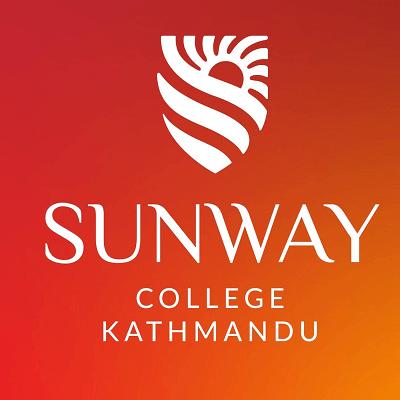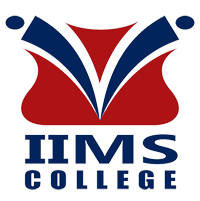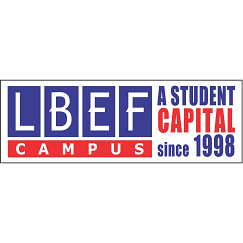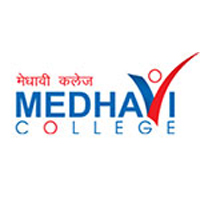Overview
BSc IT (Hons) at CG Institute of Management
The BSc (Hons) in Information Technology program at CG Institute of Management (CGIM), Kathmandu, an affiliate of Limkokwing University in Malaysia, provides students with a thorough grounding in information technology's technical and practical aspects. This program was developed to meet the growing demand for skilled IT professionals.
Students develop expertise in various fields through core courses, specializations, and electives. This detailed overview provides insights into the curriculum, objectives, learning outcomes, and opportunities offered by this program, which seeks to create result-oriented professionals ready for the tech industry. The college is devoted to providing practical education relevant to current technology trends.
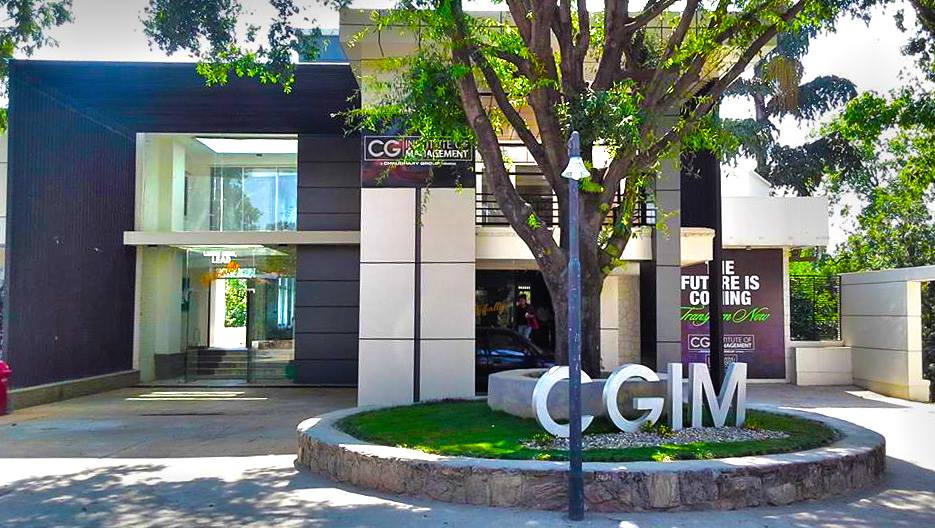
Curriculum Overview
The BSc (Hons) in Information Technology curriculum at CGIM is structured to provide a balanced mix of theory and application. The course has a structure focused on meeting the changing needs of the IT industry. This approach gives students the knowledge and abilities to excel in their careers. The program is spread across 3 years programs over 6 semesters, with courses designed to build on each other, giving a clear learning progression.
Core Courses
Core courses form the program's base, providing the essential knowledge and skills in information technology. These courses are meant to be foundational, ensuring students thoroughly understand all aspects of the field. Some core courses include:
-
Fundamentals of Computer Systems: This course introduces computer hardware and software concepts, providing students with solid technical knowledge.
-
Programming Fundamentals: Students learn basic programming principles using different programming languages, such as C++, Java, and Python, which form the basis of software creation.
-
Data Structures and Algorithms: This course focuses on managing and manipulating data in computer programs and algorithms.
-
Database Management Systems: Students learn the principles of database design, implementation, and management, a key concept in data-driven operations.
-
Computer Networks: This course overviews how computer networks operate, including network design and implementation.
-
Operating Systems: Students learn how operating systems work, their management, and their functionalities.
-
Web Development: Students gain skills in front-end and back-end web development technologies required for web-based applications.
-
Software Engineering: This course focuses on the concepts and methodologies required for developing large-scale software.
Specializations
The BSc (Hons) in Information Technology program also offers areas of specialization, enabling students to focus on their interests and career goals. Students can use these areas of specialization to make themselves more competitive in their careers. Some of the specialization areas are as follows:
-
Network Security: Specializing in network security helps students learn to protect computer networks and systems from security threats. They learn about security principles and implementation and how they apply to the network security domain.
-
Cybersecurity: This specialization focuses on the principles and practices involved in protecting information assets from cyberattacks and data breaches. Students are also prepared to respond to and manage cyber threats in various contexts.
-
Data Science: This specialization teaches students how to work with data using tools and techniques for data analysis and presentation. This is designed for those students who want to make sense of large amounts of data for business and other sectors.
-
Artificial Intelligence (AI): This specialization covers the theory and practice of AI, including machine learning, deep learning, and natural language processing. This prepares students for careers in AI.
-
Cloud Computing: Students learn about cloud computing technologies and how to manage and implement cloud systems, a crucial and ever-growing sector.
Electives
Elective courses allow students to broaden their knowledge in specific areas of IT. These courses help students grow their skills by offering knowledge of concepts not otherwise available in core courses. Some electives might include:
-
Mobile App Development: This course provides skills for developing applications for mobile platforms, including iOS and Android.
-
E-commerce: Students learn about e-commerce technologies, online payment systems, and digital marketing concepts.
-
IT Project Management: This course teaches students about IT project management concepts and the practical aspects of IT projects.
-
Human-Computer Interaction: Students learn about how people use technology and how that knowledge can be used to make better designs.
Objectives: What You Will Achieve
The BSc (Hons) in Information Technology program has been designed with the following goals. Students are expected to achieve these goals throughout the course.
-
Develop Technical Expertise: The main goal is to give students a thorough knowledge of information technology, allowing them to address current technical problems.
-
Foster Analytical Skills: The curriculum fosters critical thinking skills, enabling students to evaluate and solve IT-related issues.
-
Promote Problem Solving: The program aims to improve students' problem-solving abilities, helping them face various challenges in IT.
-
Encourage Innovation: Students are encouraged to develop creative solutions that support a culture of innovation in the IT sector.
-
Prepare for Industry: The program ensures that graduates are ready to work in the IT industry and meet the requirements of different organizations.
Scope: Career Prospects and Further Studies
A BSc (Hons) in Information Technology degree opens several career opportunities for graduates. The broad base of the program and specialization also make graduates suitable for various roles in the tech industry. Graduates are prepared for multiple jobs, such as:
-
Software Developer: Creating and implementing software applications using various programming languages across different systems.
-
Network Administrator: Setting up and maintaining computer networks, ensuring the computer systems function well.
-
Database Administrator: Manage and organize database systems to ensure data integrity and availability.
-
Cybersecurity Analyst: Identifying and preventing cybersecurity threats and keeping information assets safe.
-
Data Scientist: Analyzing large data sets to provide insights for business decisions.
-
Web Developer: Creating and designing web applications.
-
Mobile App Developer: Creating mobile applications for iOS and Android platforms.
-
IT Project Manager: Oversee IT projects from start to end to ensure their success.
-
Cloud Computing Specialist: Designing and maintaining cloud computing systems.
Additionally, the degree provides a solid base for further studies. Graduates can pursue specialized fields, such as a Master's in Data Science, Artificial Intelligence, or Cybersecurity.
Learning Outcomes: What You Will Know
Upon completing the BSc (Hons) in Information Technology program, students will have:
-
Technical Knowledge: In-depth knowledge of computer hardware, software, and networking principles.
-
Programming Skills: Skills in various programming languages and the ability to create software solutions for different problems.
-
Database Skills: Ability to design, implement, and manage database systems.
-
Cybersecurity Awareness: Knowledge of cybersecurity threats and methods to protect information assets.
-
Analytical Abilities: The ability to evaluate complex IT problems and develop solutions.
-
Project Management Skills: Skills to manage and implement IT projects.
-
Communication Skills: Capacity to communicate technical concepts effectively.
Skill Development Modules: Enhancing Competencies
In addition to the core curriculum, the BSc (Hons) in Information Technology program at CGIM has skill development modules that help students grow essential competencies for their future careers. These modules cover areas such as:
-
Problem-Solving: Modules designed to develop critical thinking and problem-solving skills. This teaches students how to tackle a variety of problems they might face.
-
Teamwork: Group projects and activities promote teamwork and collaboration, improving students' team skills.
-
Communication: Emphasis is placed on developing communication skills, helping students communicate technical ideas clearly and effectively.
-
Time Management: Students are trained to manage their time effectively to balance their learning with other commitments.
-
Leadership: Students are given opportunities to develop their leadership skills to guide and coordinate teams.
Teaching Methodology: Interactive and Practical
The teaching method at CGIM blends classroom instruction with practical application. The technique goes beyond traditional teaching, creating an interactive environment where students are actively involved in their learning process. Some features of the method include:
-
Lectures: Lectures are combined with practical examples and case studies to make the theoretical concepts easier to understand.
-
Labs: Students participate in practical lab sessions to develop their skills in different technology areas.
-
Projects: Individual and group projects help students apply their ideas and skills in solving practical problems.
-
Case Studies: Real-world case studies help students develop critical thinking and problem-solving skills.
-
Guest Lectures: CGIM invites industry experts to share their experiences, giving students practical knowledge and industry insights.
Faculty Expertise
The faculty at CGIM consists of experienced professionals with advanced degrees in different information technology fields. They are focused on giving students a thorough knowledge of the subject. The faculty is knowledgeable about the theoretical aspects of IT and the practical issues facing the current market. They work to keep their knowledge updated and ensure that the program is always relevant.
Admission Requirements
To join the BSc (Hons) in Information Technology program at CGIM, candidates must meet the following criteria:
-
Academic Qualifications: A minimum of two-year Plus Two degrees or equivalent from a recognized institution with a minimum of 2 CGPA or 45% aggregate score.
-
Application Submission: Candidates must submit an application form with all necessary documents.
-
Entrance Examination: Passing the CGIM entrance exam is a must to join the program.
-
Personal Interview: A personal interview is part of the admission procedure.
Career Opportunities
Graduates of the BSc (Hons) in Information Technology program from CGIM have various career options. The thorough training in theoretical and practical aspects of IT enables graduates to pursue different professional paths. Some careers that graduates can pursue include:
-
Software Development: Graduates can create various applications and solutions as software engineers.
-
Network Administration: Graduates can work as network specialists, managing and maintaining network infrastructure.
-
Database Management: Graduates can work with databases, managing database design, implementation, and management.
-
Cybersecurity: Graduates can work as cybersecurity experts, protecting organizations and individuals from cyber attacks.
-
Data Science: Graduates can use data analysis skills to help organizations with their data needs.
-
Web Development: Graduates can work as web developers, creating and designing websites.
-
Mobile App Development: Graduates can become mobile application developers, building apps for iOS and Android platforms.
-
IT Project Management: Graduates can work as IT project managers, overseeing IT project implementation.
Student Life and Extracurricular Activities
CGIM offers students many options for balancing academic learning with other activities. The campus has different resources for students to engage in social and cultural activities, which helps build their personalities. Student clubs and events always help students connect with their peers and develop a sense of community. These activities enhance student life by providing an environment that promotes personal development and friendships.
Scholarships and Financial Aid
CGIM is dedicated to making education accessible to all students. The college offers scholarships to students with excellent academic records and demonstrated potential. The availability of financial support options ensures that talented students have opportunities to study regardless of their financial situation. This helps make higher education accessible for those who may need it.
Why Choose This Course?
Choosing the BSc (Hons) in Information Technology program at CGIM has several advantages. The program has been designed to prepare students for successful IT careers. Some reasons why this program stands out include:
-
Practical Training: A strong focus on practical learning helps students gain real-world skills.
-
Industry Relevance: The curriculum has been developed to meet the demands of the current job market.
-
Experienced Faculty: Teachers are professionals with knowledge and expertise in their fields.
-
Career Opportunities: Graduates are prepared for various career options in the IT sector.
-
Global Perspective: The affiliation with Limkokwing University helps provide a global outlook and international standards in education.
Why Choose This College?
CGIM is a premier institute for IT studies in Nepal, offering excellent student opportunities. The college provides a good learning environment with modern facilities, experienced faculty members, and a focus on practical training and academic learning. By joining CGIM, students get:
-
Modern Facilities: State-of-the-art labs and classrooms create a good learning environment.
-
Industry Connections: Strong connections with industry partners allow industry exposure and opportunities to students.
-
Holistic Education: Focusing on technical knowledge and personal growth through extracurricular activities ensures development.
-
Student Support: The college provides comprehensive support services to ensure students have an excellent academic experience.
Conclusion
The BSc (Hons) in Information Technology program at CGIM is a good choice for any student looking to build a career in the tech world. The program combines academic understanding and practical skills, ensuring graduates are prepared for any challenges they might face in their professional journey. With a focus on skill development, a strong faculty, and the college's links to the tech sector, CGIM prepares students for success.



